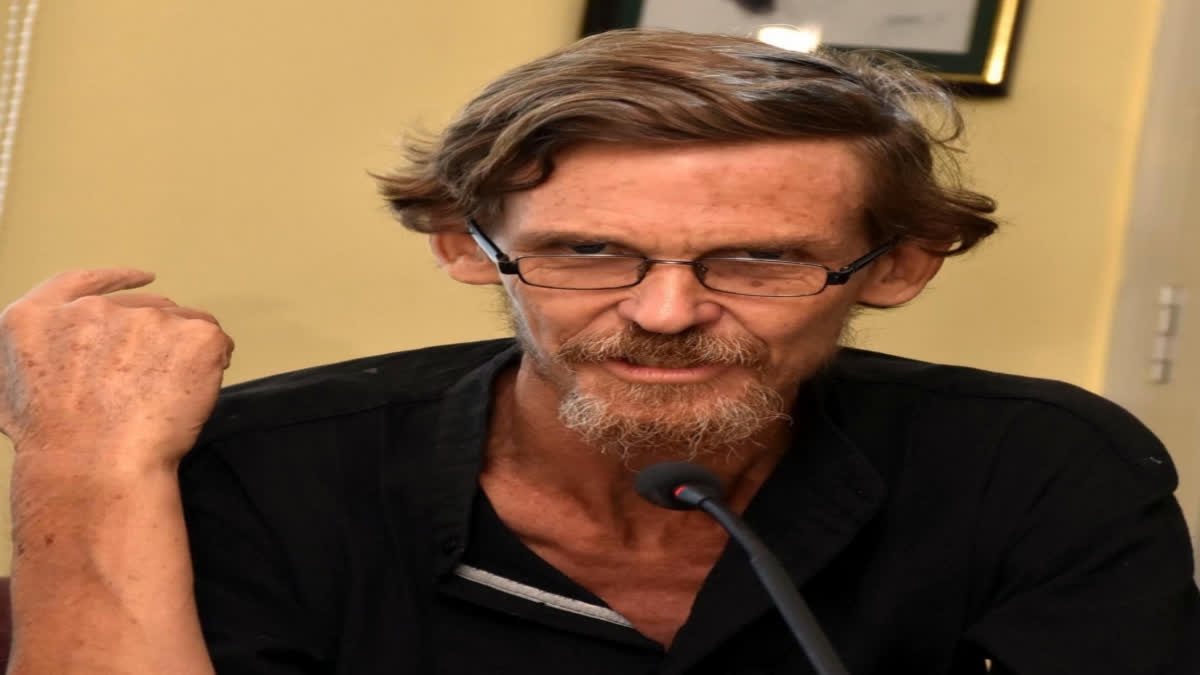Ranchi: Development economist Jean Dreze said the Indian democracy is currently navigating a crisis that is not only limited to the "recent wave of authoritarianism" but also suppression of opposition voices by the ruling BJP. He said the upcoming Lok Sabha elections under the present circumstances are as good as rigged.
In an exclusive interview with PTI, Dreze said five years ago, Arundhati Roy had described the 2019 elections as a race between a Ferrari and a few bicycles. "The metaphor is still valid. Today, thanks to the Supreme Court, we know that the Ferrari is fuelled by the corporate sector. Meanwhile, the bicycles, symbolising the main opposition parties in the state such as Jharkhand Mukti Morcha, Rashtriya Janata Dal, and the Congress are systematically targeted," he said.
"Leaders of these parties have endured relentless scrutiny and harassment by central agencies for years. Former Jharkhand chief minister Soren finds himself behind the bars, Lalu Prasad has faced intermittent periods of incarceration, and Rahul Gandhi narrowly avoided a similar fate in addition to Congress' accounts being frozen. Any politician who presents a danger to the BJP is at risk of harassment. In these circumstances, the elections are as good as rigged," the Belgium-born economist added.
Asked if the BJP is certain to sweep the elections in the mineral-rich state, the development economist said many people in Jharkhand have good reasons to be unhappy with the saffron party. "The bicycles may not be in good shape, but this time they are working as a team. That can make a big difference. There have been big surprises in all the Lok Sabha polls since 2004, with the partial exception of 2019. Exit polls often get the results wrong. The BJP is likely to win a majority of seats in the state, but it may not get 11 out of the 14 as it did in 2019," he added.
On Jharkhand's poverty and backwardness despite having about 40 per cent of India's mineral resources, Dreze said the state operates within a contractor-dominated framework.
"Contractors exploit public funds, collaborating with bureaucrats and politicians who shield them. Initially, I believed this phenomenon was confined to small towns, but it's indicative of a broader systemic issue. Mineral resources, touted as a boon, exacerbate the problem by fuelling the contractor Raj, eroding any semblance of democracy.
"The electoral process, far from addressing this issue, is entwined within it. Poor people count for nothing, except for a short while during elections. This is why they have been so badly served by the state government, irrespective of the ruling party. All this is true to a varying extent in other states as well, but Bihar and Jharkhand take the cake," he added.
On the state's economy, Dreze said his foremost recommendation would involve a radical overhaul of the schooling system, beginning with teacher appointments.
"Shockingly, one-third of all government primary schools in Jharkhand operate with just a single teacher, a blatant violation of the Right to Education Act and a disservice to children. Since 2017, no new teachers have been appointed, exacerbating the issue as retirements deplete staff numbers without replacements. The entire education system resembles a ship adrift without a rudder and demands urgent intervention," he said.
The development economist also proposed a concerted effort to revitalise the National Rural Employment Guarantee Act (NREGA). "Jharkhand holds the potential to become a beacon for employment guarantees, given the state's abundant rural workforce. I advocate for a significant shift towards harnessing local resources for the community's benefit rather than selling them off to corporate interests," he said.
"Jharkhand boasts vast potential for sustainable and equitable development of local produce, including vegetables, fruits, fish, livestock, and various forest products. Collectively, these measures could revolutionise the rural economy. However, their implementation necessitates political leadership, a quality sorely lacking in the current landscape," he added.
On the flaws of democratic politics, Dreze said recent curbs on democratic rights, such as the freedom of expression and dissent, can certainly be reversed. "However, the crisis of Indian democracy is not limited to the recent wave of authoritarianism. There is also a chronic failure that goes way back. As Dr Ambedkar warned us long ago, democracy is incompatible with the staggering inequalities that pervade the economy and society.
"The warning was ignored, and we are now paying the price. I don't see how this failure can be addressed, beyond a point, without radical change in economic and social life. One of the best-kept secrets of economics is that workers don't need a boss. They can run most enterprises themselves, with help of elected managers. This is the sort of radical economic change that would make democracy possible. It is not going to happen in a hurry, but we can work for it at least," he said.



